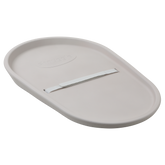Urinary tract infections (UTIs) are common during pregnancy, affecting up to 10% of expectant mothers. While they can occur at any time, pregnancy makes women more susceptible due to hormonal changes and the pressure of the growing uterus. If left untreated, a UTI can lead to more serious complications, but with prompt care and prevention, they are manageable.
What Is a UTI?
A urinary tract infection occurs when bacteria, most often E. coli, enter the urinary tract. The urinary tract includes the kidneys, ureters, bladder, and urethra. Pregnant women are particularly vulnerable to UTIs due to hormonal changes that relax the muscles of the urinary tract, slowing down the flow of urine and making it easier for bacteria to thrive.
Common Symptoms of a UTI
Recognizing the symptoms of a UTI early can help prevent it from escalating into a more serious condition, such as a kidney infection. Here are some common symptoms:- Burning sensation during urination
- Frequent urination, often with little urine output
- Cloudy or strong-smelling urine
- Lower abdominal pain or discomfort
- Fever or chills (if the infection has spread to the kidneys)
If you experience any of these symptoms, it's important to contact your healthcare provider immediately.
Why UTIs Are More Common in Pregnancy
Pregnancy brings hormonal changes that affect the urinary tract:- Progesterone relaxes the muscles in the urinary tract, slowing urine flow and making it easier for bacteria to grow.
- As the uterus expands, it can put pressure on the bladder, making it harder to empty completely, which also contributes to bacterial growth.
Are UTIs Dangerous During Pregnancy?
While a mild UTI can be treated with antibiotics, untreated UTIs can lead to serious complications, such as:- Kidney infections (pyelonephritis), which can cause fever, chills, and lower back pain
- Preterm labor or low birth weight if the infection spreads
- Sepsis, a life-threatening infection that can spread to the bloodstream
This makes it essential to seek treatment as soon as symptoms arise.
Safe Treatment Options for UTIs During Pregnancy
If diagnosed with a UTI during pregnancy, your doctor will prescribe antibiotics that are safe for both you and your baby. The most commonly prescribed antibiotics for UTIs in pregnancy include:- Cephalexin
- Amoxicillin
- Nitrofurantoin
Always complete the entire course of antibiotics, even if symptoms improve before the medication is finished. Stopping treatment early could allow the infection to return.
Preventing UTIs During Pregnancy
Preventing UTIs is key to avoiding discomfort and potential complications. Here are some simple strategies to reduce your risk:- Drink plenty of water: Aim for at least eight glasses of water per day to flush bacteria from your urinary tract.
- Go to the bathroom regularly: Don’t hold in your urine. Emptying your bladder frequently helps prevent bacteria from growing.
- Wipe from front to back: This simple habit helps prevent bacteria from the anal area from entering the urinary tract.
- Urinate after sex: This helps flush out any bacteria that may have been introduced during intercourse.
- Avoid harsh soaps or douches: These can irritate the urethra and disrupt the natural balance of bacteria in the genital area.
When to Call Your Doctor
If you suspect you have a UTI, or if you're experiencing any of the following symptoms, it's essential to seek medical attention promptly:- Fever or chills
- Back pain, particularly in the lower back or sides
- Blood in your urine
- Persistent abdominal pain
These symptoms may indicate that the infection has reached the kidneys, which requires immediate medical treatment to prevent complications.
While UTIs are common during pregnancy, they are also preventable and treatable. Stay hydrated, practice good hygiene, and be proactive about seeking treatment if symptoms arise. By taking these steps, you can reduce your risk of infection and protect your health and your baby's health during pregnancy.
Editor’s Picks
Shnuggle Baby Bath | Newborn baby bath Support with Bum Bump | Compact Bathtub for babies | Bath Seat Suitable from Birth
- From $59.95
- From $59.95
- (-0%)
- Unit price
- / per
Shnuggle Toddler Bath Tub | Big Bath for bigger kids | Child bathtub seat support | Fits in shower and adult bath
- From $76.95
- From $76.95
- (-0%)
- Unit price
- / per
Shnuggle Squishy Diaper Changing Mat | Wipeable | Hygienic | Safe
- $99.95
- $99.95
- (-0%)
- Unit price
- / per
Nattou Comforter Doudou Elephant Tembo
- $18.37
$24.50- $18.37
- (-25%)
- Unit price
- / per
Nattou Silicone Children’s Tableware Set 4-Piece with Non-Slip Suction Plate & Bowl
- $24.95
$34.95- $24.95
- (-29%)
- Unit price
- / per













